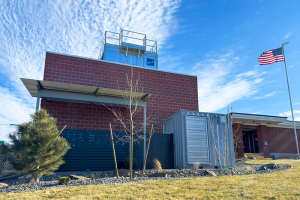Retrocommissioning to cut energy costs for Michigan health system
With a sprawling 3.2 million-square-foot campus comprising a four-tower inpatient facility and numerous other medical and administrative facilities, Beaumont Health, Royal Oak, Mich., decided to explore ways to cut energy use. It was a move that is expected to pay handsome financial dividends.
The health system teamed up with local utility company DTE Energy and Chicago-area consulting/engineering firm Grumman/Butkus Associates (G/BA) to launch a campuswide retrocommissioning (RCx) initiative that is projected to save Beaumont Health about $250,000 annually.
Beaumont took advantage of a pilot RCx program offered by DTE that helped to pay for the investigation and analysis of equipment operation conducted by G/BA. The RCx project also was an outgrowth of previous work G/BA had done to identify potential infrastructure upgrades on the campus.
The project examined equipment and systems with the goal of identifying retrocommissioning measures (RCMs) that would yield energy and cost savings with a 1.5-year payback or less. DTE paid for G/BA’s investigation and analysis, conserving Beaumont’s funds for implementation.
The campus includes 128 primary air-handling units (AHUs) and two main chiller plants with a total cooling capacity of 14,550 tons. G/BA’s team focused primarily on the AHUs.
Besides the inpatient towers and emergency department, the campus includes an administration building, three parking decks, a physician’s office building, a research building, and facilities housing the cancer, imaging center and neuroscience centers.
“In one week, four engineers functionally tested 97 AHUs, which included temperature sensor checks and modulating dampers and valve actuators,” explains Fiona Martin, P.E., senior project engineer, G/BA. “Our detailed analysis of the existing conditions helped to identify extensive energy-saving opportunities.”
The RCx team created an issues log that documented testing results, noting issues that Beaumont’s staff could address. Recommended measures included economizer optimization, discharge-air temperature reset, variable-frequency drive nighttime setbacks, static pressure reset, and hot-water pump variable-speed optimization.
When all RCx measures are implemented, electricity savings will exceed 2.7 million kilowatt-hours (kwh) annually and natural gas savings will reach about 146,000 therms a year. One action expected to produce the greatest electricity savings is nighttime-ventilation setbacks, which involves ramping down air changes in areas that are less used (or unused) at night. Controls are in place to ensure that setbacks do not compromise safety or comfort for patients and staff.
Nighttime-ventilation setbacks will save the hospital nearly 1.3 million kwh a year, representing some $98,000 in electricity costs. Projected cost savings for the site from all implemented RCx measures total about $267,000 a year.
Edna Lorenz, P.E., LEED AP, system energy manager for Beaumont Health, worked closely with the RCx team and is enthusiastic about the program’s projected outcomes.
“The program provides, for free, knowledgeable energy consultants who generate low- and no-cost, energy-saving recommendations at each hospital. Beaumont Health’s only investment is the implementation of their recommendations with a payback of 18 months or less,” she says.
With eight hospitals and 168 health centers, Beaumont has only scratched the surface of the potential benefits of RCx.
"Retrocommissioning is a great step toward larger energy-savings goals,” Martin says. “The functional test issues log and detailed report provide a road map for future upgrades and site work, and can be used as a working document on energy performance as the Royal Oak campus continues to change and expand.”




